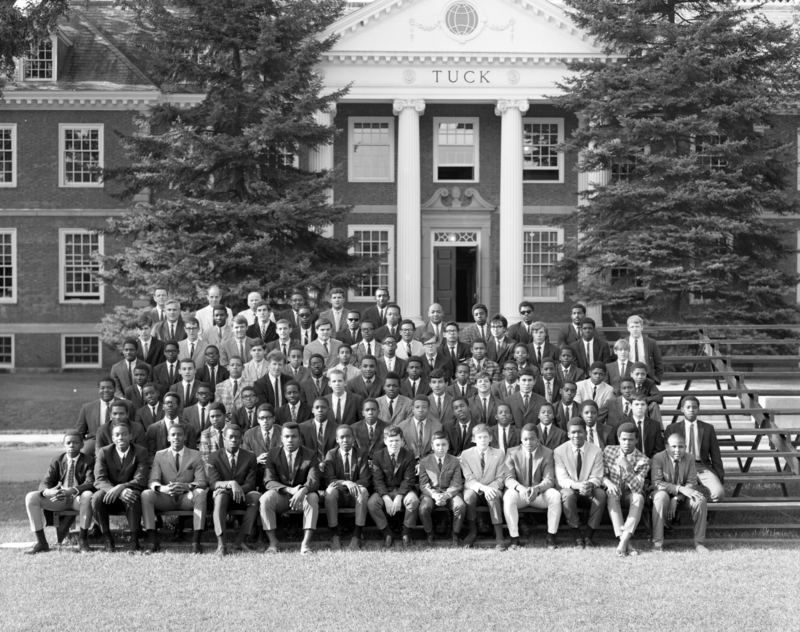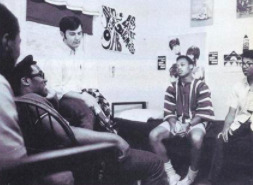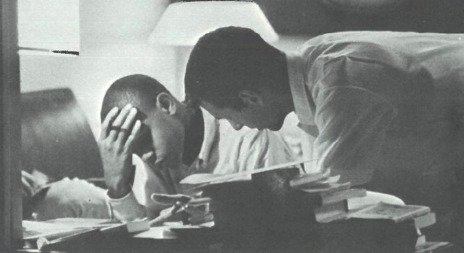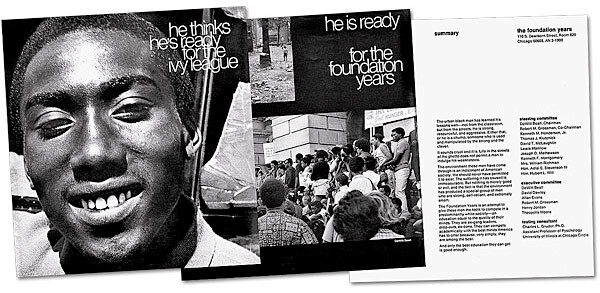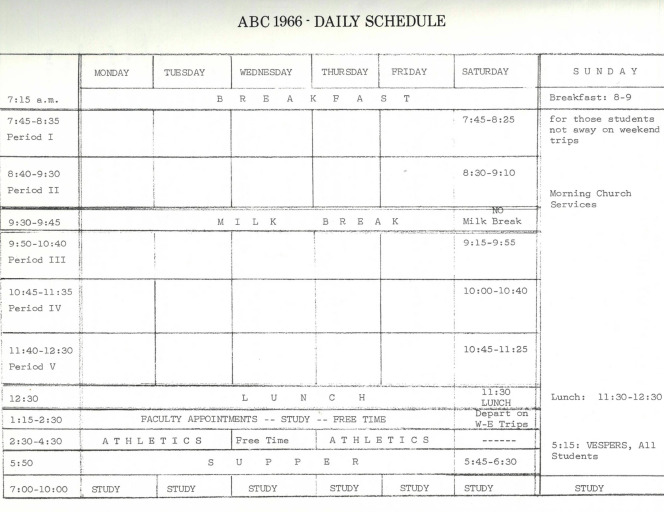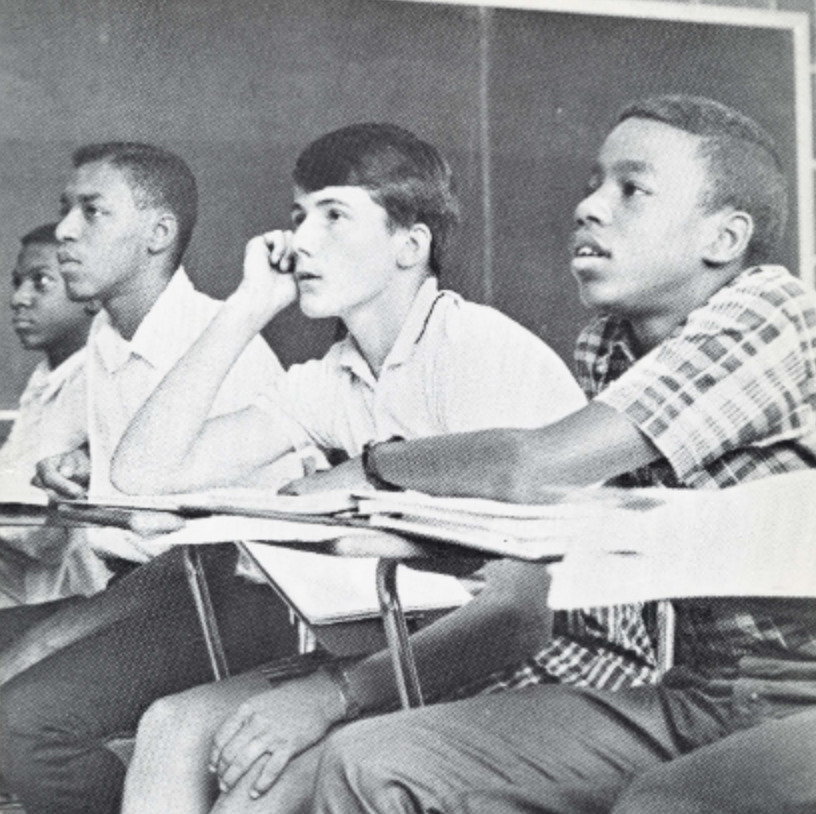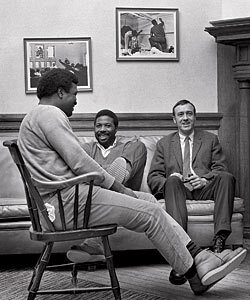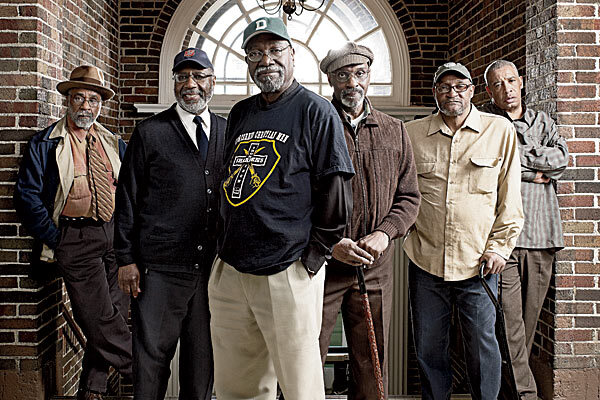Transforming the Lone Pine: Recruitment and Integration of Black students in the 60s
Transforming the Lone Pine: Recruitment and Integration of Black students in the 60s
Dartmouth’s unique geographic location, colloquially referred to as “the woods,” made the college unlike any other Ivy League institution. The Upper Valley was a predominantly white area absent of much African American representation in government, local schools, or larger community. This meant that Dartmouth had to proactively introduce Black students to the college by recruiting them to join the student body. One of the ways they did that was through sports, especially football. Other methods of recruitment were the Upward Bound program, the ABC program, and the Foundation Years Program; the latter two will be explored in this section.
The A Better Chance Program
"...a group of private school headmasters had gotten together and were searching for a way to do something in the area of civil rights, in terms of offering opportunities for minorities at their schools. And they organized themselves and called it the Independent Schools Talent Search Program (ISTSP), which is a mouthful…"
Charles Dey ['58] Dean of the Foundation Years Program and Director of ABC Program (from interview with Daniel Daly in 2002)
Above is a quote from Dean Charles Dey [‘58], one of the founders of the A Better Chance (ABC) program. After the Kennedy assassination in 1963, headmasters of preparatory schools created the Independent Schools Talent Search Program to offer private school education to minority students. In the same year, ISTSP partnered with Dey, Thomas Mikula and President John Dickey [‘29] to create a program designed to prepare students for the rigor of higher education. The 1968 ABC pamphlet invited students to apply for the program. The goal of the ABC program was to bridge the gap between minority students and their rich white counterparts by giving them the opportunity to attend Hanover High School after completion and hopefully Dartmouth College (or other elite schools).
The ABC program relied on Dartmouth undergraduates to mentor and serve as recruiters for the college. William McCurine had this very role in the program. In his interview Dey recognizes that “one of the first resident tutors from Dartmouth was Bill McCurine, an African American, and Bill and Tom Mikula developed a very close relationship.” McCurine substantiates this by referring to Mikula as his “surrogate father.” Although McCurine was not a student of the ABC program, he details in his interview how Dean Dey recruited him as a mentor for the ABC program and he spent most of his four years traveling to private schools in the Northeast and recruiting minority students to apply.
The Foundation Years Program
In Upending the Ivory Tower, Stefan M. Bradley argues that Dartmouth's geographic isolation required the college to take extra measures in its efforts for racial diversity. In doing so the college actively recruited Black students who self-identified as members of notorious Chicago gangs. This initiative was called the Foundation Years Program. Organized by Dean Charles Dey and other members of the Tucker Foundation, the Foundation Years Program transported Chicago youth to Hanover for an opportunity at higher education. There was dissent from the town of Hanover on the ABC program and Foundation Years Program. Dean Dey recalls “They didn't want those Black kids coming around. 'Geez, fifty-five Black kids coming in here in the summer,' and all that sort of thing.” Nevertheless, the program began in 1967 and had a successful turn out until its end in 1969. In an article he wrote for the Dartmouth Alumni Magazine, Bradley finds that Edward “Pepilow” Marlon Perry, the founder of Chicago’s second largest gang, the Vice Lords, attended the program. According to Perry, the Foundation Years Program reminded him that he was not second-rate to white people. In our interview McCurine recalls the program's first three students, Alan “Tiny” Evans [‘71], Henry Jordan [‘71] and Henry “Crump” Crumpton [‘73].
Ugoji: Do you remember what year you met them?
McCurine: 1967. Because they started that fall semester with us. I got very close to Crump and Tiny, Alan Evans. They were really such interesting people. All of them finished Dartmouth. All of them went on to have some kind of a career.
Dartmouth was able to offer African American students, especially those from low-income backgrounds the opportunity to study at an Ivy League institution with a strong support system. Diversifying classrooms was not enough during the late 60s and early 70s. A new challenge emerged on how to include Black students in the predominantly white student body.

